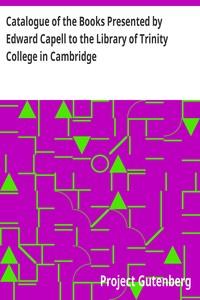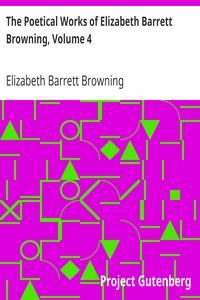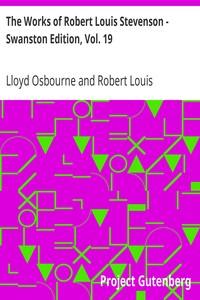Read this ebook for free! No credit card needed, absolutely nothing to pay.
Words: 80677 in 12 pages
This is an ebook sharing website. You can read the uploaded ebooks for free here. No credit cards needed, nothing to pay. If you want to own a digital copy of the ebook, or want to read offline with your favorite ebook-reader, then you can choose to buy and download the ebook.


: Ivory Apes and Peacocks by Huneker James - Art; Music History and criticism; Literature Modern History and criticism
IVORY APES AND PEACOCKS
I
THE GENIUS OF JOSEPH CONRAD
I
In these piping days when fiction plays the handmaid or prophet to various propaganda; when the majority of writers are trying to prove something, or acting as venders of some new-fangled social nostrums; when the insistent drums of the Great God R?clame are bruising human tympani, the figure of Joseph Conrad stands solitary among English novelists as the very ideal of a pure and disinterested artist. Amid the clamour of the market-place a book of his is a sea-shell which pressed to the ear echoes the far-away murmur of the sea; always the sea, either as rigid as a mirror under hard, blue skies or shuddering symphonically up some exotic beach. Conrad is a painter doubled by a psychologist; he is the psychologist of the sea--and that is his chief claim to originality, his Peak of Darien. He knows and records its every pulse-beat. His genius has the rich, salty tang of an Elizabethan adventurer and the spaciousness of those times. Imagine a Polish sailor who read Flaubert and the English Bible, who bared his head under equatorial few large stars and related his doings in rhythmic, sonorous, coloured prose; imagine a man from a landlocked country who "midway in his mortal life" began writing for the first time and in an alien tongue, and, added to an almost abnormal power of description, possessed the art of laying bare the human soul, not after the meticulous manner of the modern Paul Prys of psychology, but following the larger method of Flaubert, who believed that actions should translate character--imagine these paradoxes and you have partly imagined Joseph Conrad, who has so finely said that "imagination, and not invention, is the supreme master of art as of life."
He has taken the sea-romance of Smollett, Marryat, Melville, Dana, Clark Russell, Stevenson, Becke, Kipling, and for its well-worn situations has substituted not only many novel nuances, but invaded new territory, revealed obscure atavisms and the psychology lurking behind the mask of the savage, the transpositions of dark souls, and shown us a world of "kings, demagogues, priests, charlatans, dukes, giraffes, cabinet ministers, bricklayers, apostles, ants, scientists, Kaffirs, soldiers, sailors, elephants, lawyers, dandies, microbes, and constellations of a universe whose amazing spectacle is a moral end in itself." In his Reminiscences Mr. Conrad has told us, with the surface frankness of a Pole, the genesis of his literary d?but of Almayer's Folly, his first novel, and in a quite casual fashion throws fresh light on that somewhat enigmatic character--reminding me in the juxtaposition of his newer psychologic procedure and the simple old tale, of Wagner's Venusberg ballet, scored after he had composed Tristan und Isolde. But, like certain other great Slavic writers, Conrad has only given us a tantalising peep into his mental workshop. We rise after finishing the Reminiscences realising that we have read once more romance, in whose half-lights and modest evasions we catch fleeting glimpses of reality. Reticence is a distinctive quality of this author; after all, isn't truth an idea that traverses a temperament?
That many of his stories were in the best sense "lived" there can be no doubt--he has at odd times confessed it, confessions painfully wrung from him, as he is no friend of the interviewer. The white-hot sharpness of the impressions which he has projected upon paper recalls Taine's dictum: "les sensations sont des hallucinations vraies." Veritable hallucinations are the seascapes and landscapes in the South Sea stories, veritable hallucinations are the quotidian gestures and speech of his anarchists and souls sailing on the winds of noble and sinister passions. For Conrad is on one side an implacable realist.... Unforgetable are his delineations of sudden little rivers never charted and their shallow, turbid waters, the sombre flux of immemorial forests under the crescent cone of night, and undergrowth overlapping the banks, the tragic chaos of rising storms, hordes of clouds sailing low on the horizon, the silhouettes of lazy, majestic mountains, the lugubrious magic of the tropical night, the mysterious drums of the natives, and the darkness that one can feel, taste, smell. What a gulf of incertitudes for white men is evoked for us in vivid, concrete terms. Unforgetable, too, the hallucinated actions of the student Razumov the night Victor Haldin, after launching the fatal bomb, seeks his room, his assistance, in that masterpiece, Under Western Eyes. But realist as Conrad is, he is also a poet who knows, as he says himself, that "the power of sound has always been greater than the power of sense." He woos the ear with his singing prose as he ravishes the eye with his pictures. In his little-known study of Henry James he wrote: "All creative art is magic, is evocation of the unseen in forms persuasive, enlightening, familiar, and surprising," and finally, "Fiction is history, human history, or it is nothing." Often a writer tells us more of himself in criticising a fellow craftsman than in any formal aesthetic pronunciamiento. We soon find out the likes and dislikes of Mr. Conrad in this particular essay, and also what might be described as the keelson of his workaday philosophy: "All adventure, all love, every success, is resumed in the supreme energy of renunciation. It is the utmost limit of our power." No wonder his tutor, half in anger, half in sorrow, exclaimed: "You are an incorrigible, hopeless Don Quixote."
I suppose a long list might be made of foreigners who have mastered the English language and written it with ease and elegance, yet I cannot recall one who has so completely absorbed native idioms, who has made for himself an English mind , as has Joseph Conrad. He is unique as stylist. He first read English literature in Polish translations, then in the original; he read not only the Bible and Shakespeare, but Dickens, Fenimore Cooper, and Thackeray; above all, Dickens. He followed no regular course, just as he belongs to no school in art, except the school of humanity; for him there are no types, only humans. His sensibility, all Slavic, was stimulated by Dickens, who was a powerful stimulant of the so-called "Russian pity," which fairly honeycombs the works of Dosto?evsky. There is no mistaking the influence of the English Bible on Conrad's prose style. He is saturated with its puissant, elemental rhythms, and his prose has its surge and undertow. That is why his is never a "painted ship on a painted ocean"; by the miracle of his art his water is billowy and undulating, his air quivers in the torrid sunshine, and across his skies--skies broken into new, strange patterns--the cloud-masses either float or else drive like a typhoon. His rhythmic sense is akin to Flaubert's, of whom Arthur Symons wrote: "He invents the rhythm of every sentence, he changes his cadence with every mood, or for the convenience of every fact; ... he has no fixed prose tune." Nor, by the same token, has Conrad. He seldom indulges, as does Th?ophile Gautier, in the static paragraph. He is ever in modulation. There is ebb and flow in his sentences. A typical paragraph of his shows what might be called the sonata form: an allegro, andante, and presto. For example, the opening pages of Karain in Tales of Unrest:
"Sunshine gleams between the lines of those short paragraphs --sunshine and the glitter of the sea. A strange name wakes up memories; the printed words scent the smoky atmosphere of to-day faintly, with the subtle and penetrating perfume as of land-breezes breathing through the starlight of bygone nights; a signal-fire gleams like a jewel on the high brow of a sombre cliff; great trees, the advanced sentries of immense forests, stand watchful and still over sleeping stretches of open water; a line of white surf thunders on an empty beach, the shallow water foams on the reefs; and green islets scattered through the calm of noonday lie upon the level of a polished sea like a handful of emeralds on a buckler of steel."
II
Invention he has to a plentiful degree, notwithstanding his giving it second place in comparison with imagination. His novels are the novels of ideas dear to Balzac, though tinged with romance--a Stendhal of the sea. Gustave Kahn called him un puissant r?veur, and might have added, a wonderful spinner of yarns. Such yarns--for men and women and children! At times yarning seemingly for the sake of yarning--true art-for-art, though not in the "precious" sense. From the brilliant melochromatic glare of the East to the drab of London's mean streets, from the cool, darkened interiors of Malayan warehouses to the snow-covered all?es of the Russian capital, or the green parks on the Lake of Geneva, he carries us on his magical carpet, and the key is always in true pitch. He never saves up for another book as Henry James once said of some author, and for him, as for Mr. James, every good story is "both a picture and an idea"; he seeks to interpret "the uncomposed, unrounded look of life with its accidents, its broken rhythms." He gets atmosphere in a phrase; a verbal nuance lifts the cover of some iniquitous or gentle soul. He contrives the illusion of time, and his characters are never at rest; even within the narrow compass of the short story they develop; they grow in evil or wisdom, are always transformed; they think in "character," and ideality unites his vision with that of his humans. Consider the decomposition of the moral life of Lord Jim and its slow recrudescence; there is a prolonged duel between the will and the intelligence. Here is the tesselation of mean and tragic happenings in the vast mosaic we call Life. And the force of fatuity in the case of Almayer--a book which has for me the bloom of youth. Sheer narrative could go no further than in The Nigger of the Narcissus , nor interior analysis in The Return.
What I once wrote of Henry James might be said of Joseph Conrad: "He is exquisitely aware of the presence of others." And this awareness is illustrated in Under Western Eyes and Nostromo--the latter that astonishing rehabilitation of the humming life on a South American seaboard. For Nostromo nothing is lost save honour; he goes to his death loving insensately; for Razumov his honour endures till the pressure put upon it by his love for Haldin's sister cracks it, and cracks, too, his reason. For once the novelist seems cruel to the pathological point--I mean in the punishment of Razumov by the hideous spy. I hope this does not betray parvitude of view-point. I am not thin-skinned, and Under Western Eyes is my favourite novel, but the closing section is lacerating music for the nerves. And what a chapter!--that thunder-storm driving down the valley of the Rh?ne, the haggard, haunted face of the Russian student forced, despite his convictions, to become an informer and a supposed anarchist . Under Western Eyes is a masterpiece of irony, observation, and pity. I once described it as being as powerful as Dosto?evsky and as well written as Turgenieff. The truth is that it is Conrad at his best, although I know that I may seem to slight the Eastern tales. It has the colour and shape and gait of the marvellous stories of Dosto?evsky and Turgenieff--with an absolutely original motive, and more modern. A magical canvas!
Free books android app tbrJar TBR JAR Read Free books online gutenberg
More posts by @FreeBooks

: Catalogue of the Books Presented by Edward Capell to the Library of Trinity College in Cambridge by Greg W W Walter Wilson Compiler - Shakespeare William 1564-1616 Bibliography Catalogs; Trinity College (University of Cambridge). Library Catalogs


: The Poetical Works of Elizabeth Barrett Browning Volume 4 by Browning Elizabeth Barrett - English poetry 19th century; Poetry Modern 19th century Banned Books from Anne Haight's list






